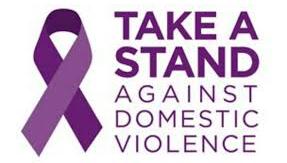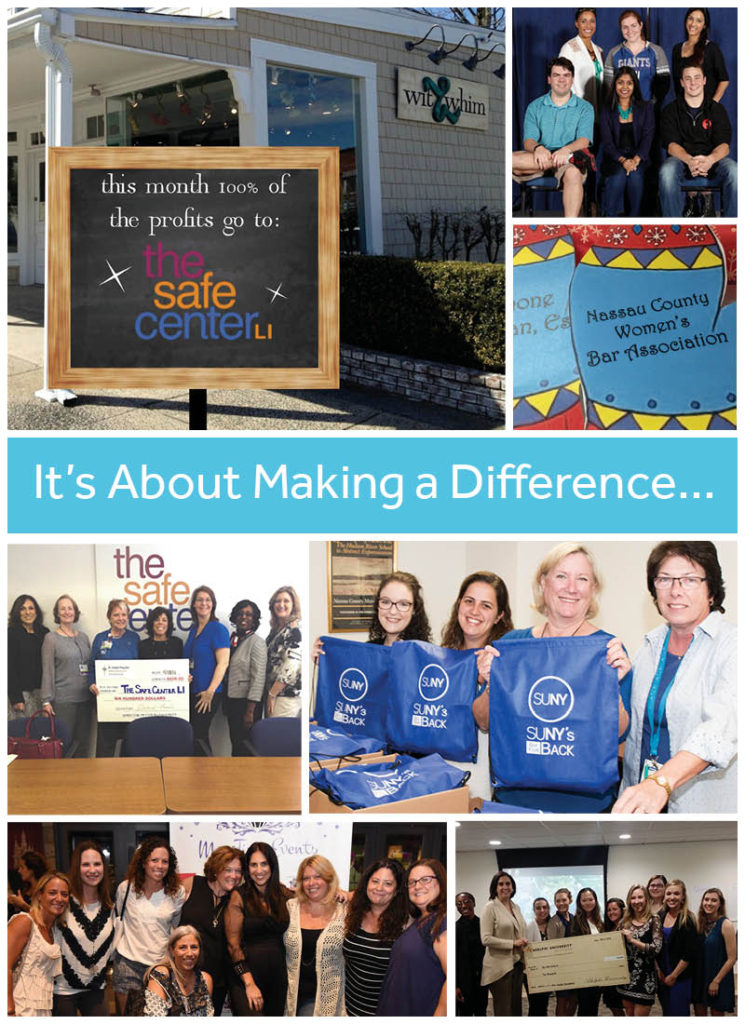 In This Issue
In This Issue
Domestic Violence Awareness Month
Domestic Violence Statistics
Healing and Self Care at The Safe Home
What Is Dating Violence?
Are You A Philanthropist At Heart?
Holiday Gift Card Drive Needs Your Help
Upcoming Events & Trainings
Domestic Violence Awareness Month
October is upon us.  And because it’s Domestic Violence Awareness Month, we encourage people to take note this month of the existence of domestic violence and the potential victims around us. This type of awareness of domestic violence should remain consistent, even past the month of October.
And because it’s Domestic Violence Awareness Month, we encourage people to take note this month of the existence of domestic violence and the potential victims around us. This type of awareness of domestic violence should remain consistent, even past the month of October.
Here are a few ways to raise awareness about domestic violence and the impact it has on our communities, our state, and around the world.
- Volunteer your time with your state coalition or local program.
- Participate in 2016’s National Week of Action from October 16 through 22, 2016!
- Wear purple – the color of Domestic Violence Awareness Month – during the month of October and use this as a way to tell others why ending domestic violence is important to you.
- Speak out – Talk with a friend, family member, colleague, or neighbor about domestic violence.
- Encourage friends and family members to donate to The Safe Center or your other favorite domestic violence advocacy organizations to help support our vital missions to prevent and end domestic violence.
- Change your social media profile and cover photos to purple ribbons and other domestic violence awareness signs or slogans.
Domestic Violence Statistics
Research reveals partner abuse is more prevalent than you probably ever imagined. Every minute in the United States, 20 people experience violence at the hands of an intimate partner, according to CDC numbers. More than 1 in 3 women and 1 in 4 men will be the victim of intimate partner violence in their lifetime. This means as many as 10 million women and men experience physical abuse in a given year.
But domestic abuse is not limited to that of a physical nature.
According to the National Coalition Against Domestic Violence, about 48 percent of women and 49 percent of men have experienced at least one “psychologically aggressive behavior” by an intimate partner, including humiliation, stalking and isolating a victim from his or her family and friends.
Healing and Self Care at The Safe Home
One might expect a huge sigh of relief from domestic violence survivors when they initially come to the Safe Home. However, more often than not their minds are still very busy when they first arrive. Even though they are now physically in a safe place, having had the courage to flee from a dangerous situation, most clients still have a long way to go before they feel truly at ease.
As an advocate for the families who stay at the Safe Home, I get to hear about the many different goals clients wish to accomplish while they’re with us. Some want to go back to school or are already thinking about potential employment opportunities. Other clients have legal matters that they require assistance with, and just about everybody has long-term housing on their mind. Some clients have more specific goals, such as passing a road test or improving their English.
All of these are important, and we encourage the clients to set goals for themselves. What many survivors don’t come in thinking about though is how they are going to heal, and what they can do for self care. We try to remind them that these types of goals are just as important as any other, which is why it is so essential to have access to both counseling and advocacy services while at the house. For some clients, goals might change as their time spent in the Safe Home allows them to discover things they didn’t know about themselves and what they wanted. Many clients even develop friendships with the other survivors in the house and subsequently help empower each other.
The ultimate hope is that when the time does come for a client to move on, they leave with a little more peace of mind than when they first came in, and they can be one step closer to taking that sigh of relief.
– Safe Home Advocate
What is Dating Violence?
Dating violence is controlling, abusive, and aggressive behavior in a romantic relationship. It occurs across all communities, regardless of race, gender, sexual preference, age, religion, cultural heritage, and social or economic status.
 Dating violence isn’t only about hitting. It’s about: Excessive jealousy, threats, accusations, verbal abuse, forced sex or being humiliated into performing sexual acts; constantly calling/texting; possessiveness; telling you what to wear, who you can talk to, and who you can have as a friend; isolating you from friends and family.
Dating violence isn’t only about hitting. It’s about: Excessive jealousy, threats, accusations, verbal abuse, forced sex or being humiliated into performing sexual acts; constantly calling/texting; possessiveness; telling you what to wear, who you can talk to, and who you can have as a friend; isolating you from friends and family.
It can occur in person or electronically and might occur with a current or former dating partner.
It can include verbal, emotional, physical, or sexual abuse, or a combination.
Dating violence is a public health issue that affects people from all ages, backgrounds and identities, however, young people ages 16-24 experience violence more than any other age group. In fact 1 in 3 young people experience some form of dating or sexual violence.
Abusive relationships can start just like healthy ones – full of love, excitement and romance. As time goes on, what once felt loving or flattering starts to feel controlling and even frightening.
Some of the effects of the abuse are:
- Guilt, shame, and blame – that you couldn’t stop the abuse or experienced extreme fear and arousal, or you froze
- Low Self Esteem – that you feel defective, worthless, empty
- Intimacy and relationship issues – that you find yourself in one abusive relationship after another and/or have difficulty communicating or expressing yourself or managing your emotions
No matter what the abuse, it’s never too late to begin the healing process from this experience and live a happy, healthy life that you deserve.
If you or someone you care about has been a victim of dating violence, please contact our confidential hotline at 516-542-0404 to find out how we can help. If this is an emergency and you are not safe, please call 911.
Are You A Philanthropist At Heart?
Each year many individuals, business and health professionals, educators, students, religious institutions and abuse prevention advocates select our agency as the recipient of their individual or group fundraising efforts. Through their support, they become part of a movement that:
- Creates awareness surrounding the issues.
- Challenges social systems that tolerate and perpetuate abuse.
- Restores hope to those that need it most.
Champions for the Safe Center know their efforts will directly impact the lives of adult and child victims of abuse. Their support can come from many forms including:
- New clothing and toiletries for our clients
- Monetary donations resulting from third-party campaigns, appeals, and events
- Gift cards for our school supply and holiday drives
Please see Third-Party Fundraising Guidelines for the Safe Center.
Want to Make A Difference? Why not join us?
Contact Francine Medaglia, Director of Resource Development at 516.465.4748 or email to fmedaglia@tscli.org
Holiday Gift Card Drive
The Safe Center is requesting Gift Cards in $25 denominations. Gift Cards will be distributed to our client families to purchase holiday gifts for their children. To Participate:
- Fill out the donation form to send with your donation.
- Send or drop off your gift card(s) by Thursday, December 1st, 2016 to:
The Safe Center,
15 Grumman Road West, Suite 1000
Bethpage, NY 11714
Attn: Holiday Drive - Send in a check with “Holiday Drive” on the memo line and the staff will be happy to purchase a gift card for you.
- Donate online
Learn more about how you can help us accomplish our 2016 goal of making the holidays a little brighter for the families we serve.
For more information, please contact: Joanne Franco at 516-465-4700, jfranco@tscli.org or
Lois Schwaeber at 516-465-4700, lschwaeber@tscli.org.
________________________________________
2016 Events & Trainings
October 26th, 2016
Domestic Abuse Awareness Ceremony
11:00 am – 12 pm, Nassau County Community College Theatre
Learn More.
Overview of Intimate Partner Abuse(3 CEU’s credits available)
6:00 pm – 9:00 pm, The Safe Center
Learn More.
October 27th, 2016
Racism, Privilege and Oppression (6 CEU’s credits available)
9:00 am – 4:00 pm, The Safe Center
Learn More.
Free Legal Representation
3:00 pm – 6:00 pm, Nassau County Bar Association
Learn More and Call to Register 516-747-4070
November 4th, 2016
A Strengths-Based Approach to Working with Adolescents (6 CEU’s credits available)
9:00 am – 4:00 pm, The Safe Center
Learn More.
November 9th, 2016
Human Sex Trafficking (3 CEU’s credits available)
6:00 pm – 9:00 pm
Learn More.
November 29th, 2016
#Giving Tuesday
Global Day of Giving Back
December 1st, 2016
Adverse Childhood Experiences and the Neurobiology of Trauma (3 CEU’s credits available)
9 am -12 pm, The Safe Center
Learn More.
NCWBA (Nassau County Women’s Bar Association) Holiday Party & Mittens Drive
6:00 pm – 9:00 pm
Westbury Manor
December 1st -4th, 2016
Champions For Charity Holiday Shopping Benefit
Participating Americana Manhasset and Wheatley Plaza stores and restaurants will donate a percentage of purchases to The Safe Center. Learn More.
December 8th, 2016
Safe Center Holiday Cocktail Party Fundraiser
6:00 pm – 9:00 pm
Fortunoff Fine Jewelry
2017 Events
April 3rd, 2017
Taste That Jazz
6:30 pm – 8:30 pm
The Carltun, Eisenhower Park
www.tsclitaste.org
April 7th, 2017
The Many Faces of Violence Conference
9:00 am – 5:00 pm
Long Island University, C.W. Post Campus
June 2017
Golf Outing
Wheatley Hills Golf Club
www.tscligolf.org
(PDF Version the newsletter)

